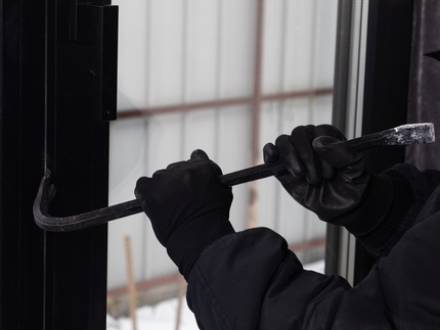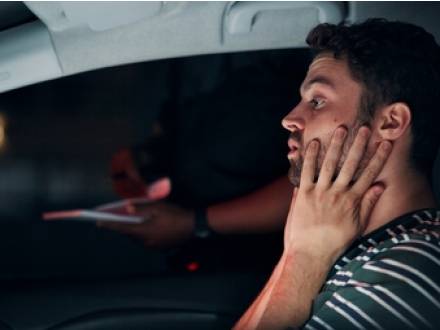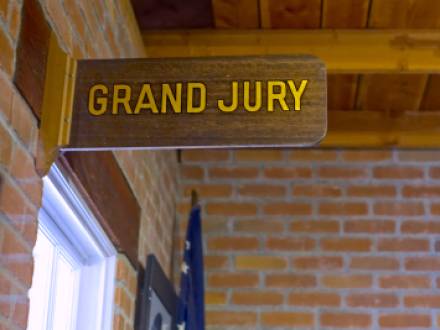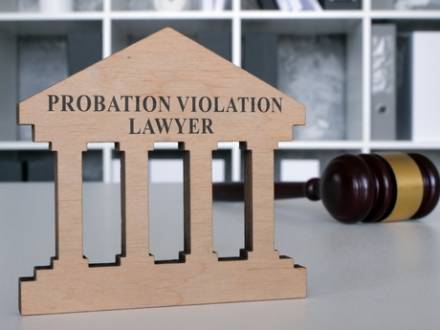Recent Blog Posts
Burglary vs. Robbery vs. Theft in Illinois
 If you or someone you love has been charged with a property crime in 2026, you may be hearing words like burglary, robbery, and theft used almost interchangeably. They are not the same thing.
If you or someone you love has been charged with a property crime in 2026, you may be hearing words like burglary, robbery, and theft used almost interchangeably. They are not the same thing.
In Illinois, these are three separate crimes with very different definitions and very different consequences. A Chicago criminal defense lawyer can review your case for free and help you understand what you are actually facing.
Am I Going to Be Charged with Rape?
 If you are reading this, you are probably worried or downright scared. Maybe you had a sexual encounter that you now worry could lead to criminal charges. Maybe the other person was drunk. Maybe you are not sure they really wanted to have sex. Maybe they were younger than you thought. Whatever the situation, you need to understand Illinois law and what could happen next.
If you are reading this, you are probably worried or downright scared. Maybe you had a sexual encounter that you now worry could lead to criminal charges. Maybe the other person was drunk. Maybe you are not sure they really wanted to have sex. Maybe they were younger than you thought. Whatever the situation, you need to understand Illinois law and what could happen next.
Sex crime charges are extremely serious. If you are facing sex crime charges in 2026, even if you have not been arrested yet, you should talk to a lawyer immediately. Our Chicago sex crimes defense attorney offers free consultations and can help you understand your legal situation. Call us today before you talk to police or anyone else about what happened.
The Definition of Rape in Illinois
Illinois does not actually use the word rape in its criminal code. Instead, the law calls it criminal sexual assault. Under 720 ILCS 5/11-1.20, criminal sexual assault is when someone commits an act of sexual penetration and uses force or threat of force, or when they know the other person can’t consent.
Will You Go to Jail for a Second DUI in Chicago?
 Unlike a first DUI, where you might avoid jail through probation, a second DUI requires the judge to sentence you to at least five days in jail or 240 hours of community service. The maximum sentence is one year in jail, plus significant fines and a minimum one-year license revocation.
Unlike a first DUI, where you might avoid jail through probation, a second DUI requires the judge to sentence you to at least five days in jail or 240 hours of community service. The maximum sentence is one year in jail, plus significant fines and a minimum one-year license revocation.
A second DUI is a Class A misdemeanor under Illinois law, specifically 625 ILCS 5/11-501. This is much more serious than a first offense. According to the Illinois Secretary of State, over 21,000 people were arrested for DUI in Illinois last year. Many of these are repeat offenders who face harsh mandatory penalties that can dramatically affect their lives.
If you are facing a second DUI charge in 2026, the stakes are high. Our Chicago DUI defense lawyer offers free consultations to help you understand your options and build the strongest possible defense.
Carjacking in Illinois: Penalties and Defenses
 Carjacking in Illinois, especially in the Chicago area, has surged in the past two decades, although there are signs of decline from the peak in 2021. In 2022, Chicago reported 1,655 carjackings, which was more than double the number from 2018, but down about 11 percent from 2021.
Carjacking in Illinois, especially in the Chicago area, has surged in the past two decades, although there are signs of decline from the peak in 2021. In 2022, Chicago reported 1,655 carjackings, which was more than double the number from 2018, but down about 11 percent from 2021.
Reports from mid-2025 indicate a significant drop, with only 64 carjackings reported between January and June of 2025. Dedicated task forces in Illinois have recovered numerous stolen cars and made a significant number of arrests, and Illinois passed a bill that required car manufacturers to establish a 24-hour hotline for police to track stolen vehicles.
While many people are shocked to find that carjacking is treated as being among the most serious violent felonies in the system, often carrying lengthy prison terms, firearm enhancements, and mandatory minimums. If you are facing carjacking charges or were the "lookout" or someone allegedly involved after the fact, you need a strong, experienced Chicago, IL criminal defense lawyer.
Power, Gas, and Water Theft: Illinois Law Explained
 When most of us think of theft, we think of physical property or money being taken. However, in the state of Illinois, theft of utilities like electricity, gas, and water can result in misdemeanor or even felony charges under 720 ILCS 5/16-14. Anyone who diverts or tampers with a utility meter, or uses electricity, gas, or water without authorization, commits theft of services.
When most of us think of theft, we think of physical property or money being taken. However, in the state of Illinois, theft of utilities like electricity, gas, and water can result in misdemeanor or even felony charges under 720 ILCS 5/16-14. Anyone who diverts or tampers with a utility meter, or uses electricity, gas, or water without authorization, commits theft of services.
An increasing number of utility companies are utilizing smart-meter data and digital evidence to identify any irregularities in usage. In some cases, the issue is nothing more than a faulty meter or a billing dispute. In other cases, the problem is intentional bypass, resulting in theft of services.
If you are facing charges of utility theft, it is essential that you understand how the state defines and punishes this criminal offense. Your first step should always be to consult with a Chicago, IL criminal defense lawyer who can examine the evidence and build a solid defense on your behalf.
Who’s Liable for Child Pornography on a Shared Device?
 In today’s world, both homes and workplaces often rely on shared computers, tablets, and company servers. So, what happens when law enforcement finds child pornography files on a device used by multiple people? In the state of Illinois, possession of child pornography (720 ILCS 5/11-20.1) is a felony with devastating penalties, including time in prison, and mandatory sex offender registration, not to mention the social stigma of being convicted of a sex crime.
In today’s world, both homes and workplaces often rely on shared computers, tablets, and company servers. So, what happens when law enforcement finds child pornography files on a device used by multiple people? In the state of Illinois, possession of child pornography (720 ILCS 5/11-20.1) is a felony with devastating penalties, including time in prison, and mandatory sex offender registration, not to mention the social stigma of being convicted of a sex crime.
It can also be very challenging to secure employment or rent a home. When the evidence in a child pornography case is tied to a shared computer, proving who was actually responsible becomes far more complicated. If you or a loved one is facing life-changing allegations of child pornography, it is essential to understand the defenses that may apply in your case.
How Deepfake Evidence is Changing Illinois Criminal Cases
 The continuing rise of artificial intelligence has brought some troubling new challenges to criminal courts. Deepfake evidence consists of realistic but AI-generated audio, video, or images, and these images can depict someone saying or doing something they did not do. While AI technology has legitimate, even helpful uses, it continues to surface in criminal cases either as a tool to shift blame or fabricate alibis or as alleged evidence against a defendant.
The continuing rise of artificial intelligence has brought some troubling new challenges to criminal courts. Deepfake evidence consists of realistic but AI-generated audio, video, or images, and these images can depict someone saying or doing something they did not do. While AI technology has legitimate, even helpful uses, it continues to surface in criminal cases either as a tool to shift blame or fabricate alibis or as alleged evidence against a defendant.
Can deepfake material be absolutely authenticated? Can juries differentiate between a genuine recording and a sophisticated AI fake? How can miscarriages of justice be prevented, and what safeguards are necessary? Deepfake evidence is rapidly evolving, presenting significant legal challenges. Consulting with a knowledgeable Oakbrook Terrace, IL criminal defense lawyer can help you understand the strategies defense attorneys use to protect their clients.
Can You Be Charged with a Crime in Illinois and Not Arrested?
 Most of us assume that if we are charged with a criminal offense, we will also be arrested. That may or may not be the case in Illinois. Depending on the crime and the circumstances, you could potentially face criminal charges without ever being handcuffed or taken into custody. It is important that you understand how charging decisions are made and when an arrest is required.
Most of us assume that if we are charged with a criminal offense, we will also be arrested. That may or may not be the case in Illinois. Depending on the crime and the circumstances, you could potentially face criminal charges without ever being handcuffed or taken into custody. It is important that you understand how charging decisions are made and when an arrest is required.
It is also important to understand how summonses and notices to appear are issued, and what your response should be. This can help you avoid a serious legal misstep that could be difficult to recover from. An experienced Rolling Meadows, IL criminal defense lawyer is your best resource to answer your questions and ensure your rights are protected.
Charged But Not Arrested
A charge is a formal accusation of a criminal offense, while an arrest involves taking a person into custody, booking them, and potentially holding them in jail. Although charges and arrests usually go hand-in-hand, there are four specific circumstances under which you could be charged but not arrested. These include:
What You Need to Know About Illinois Grand Jury Investigations
 Perhaps you have heard rumors that you may be the target of a grand jury investigation. How do you find out whether the rumor is true, and if it is, what should you do? Most people associate federal law enforcement with grand juries, but only two states (Connecticut and Pennsylvania) and Washington, D.C., do not utilize state grand juries. State grand juries are typically reserved for serious criminal cases involving violent crimes, organized crimes, drug offenses, and public corruption.
Perhaps you have heard rumors that you may be the target of a grand jury investigation. How do you find out whether the rumor is true, and if it is, what should you do? Most people associate federal law enforcement with grand juries, but only two states (Connecticut and Pennsylvania) and Washington, D.C., do not utilize state grand juries. State grand juries are typically reserved for serious criminal cases involving violent crimes, organized crimes, drug offenses, and public corruption.
A state grand jury usually hears evidence and then determines if criminal charges should be filed and whether a person should be indicted for a criminal offense. The grand jury is comprised of those from the community. While grand juries can have up to 23 members, in Illinois, they consist of 16 members. At least 12 members must be present before the grand jury can hear evidence. Grand jury investigations are typically considered "secret" proceedings, but in smaller cities, residents are more likely to be aware that a grand jury has been convened, and even the reason for the grand jury.
Avoiding the Most Common Illinois Probation Violations
 Between 2010 and 2023, the number of people in Illinois prisons fell nearly 40 percent, reaching the lowest level since 1991. The general consensus is that the decline in the prison population is due to broad changes in sentencing practices, especially the increased use of community supervision (probation). A shift in thinking regarding sentencing goals, the increased availability of community-based options like probation, and concerns over the cost of incarceration have led to these significant changes.
Between 2010 and 2023, the number of people in Illinois prisons fell nearly 40 percent, reaching the lowest level since 1991. The general consensus is that the decline in the prison population is due to broad changes in sentencing practices, especially the increased use of community supervision (probation). A shift in thinking regarding sentencing goals, the increased availability of community-based options like probation, and concerns over the cost of incarceration have led to these significant changes.
A number of specialized alternative treatment programs that keep those convicted of a crime out of prison have been seen across the state. Jail-based programs, police-led deflection efforts that divert people into treatment, specialized treatment courts, and enhanced probation services are all making substantial contributions to divert people from prison whenever possible. The state has also dedicated funding to programs like Adult Redeploy Illinois.













 312-345-1700
312-345-1700



